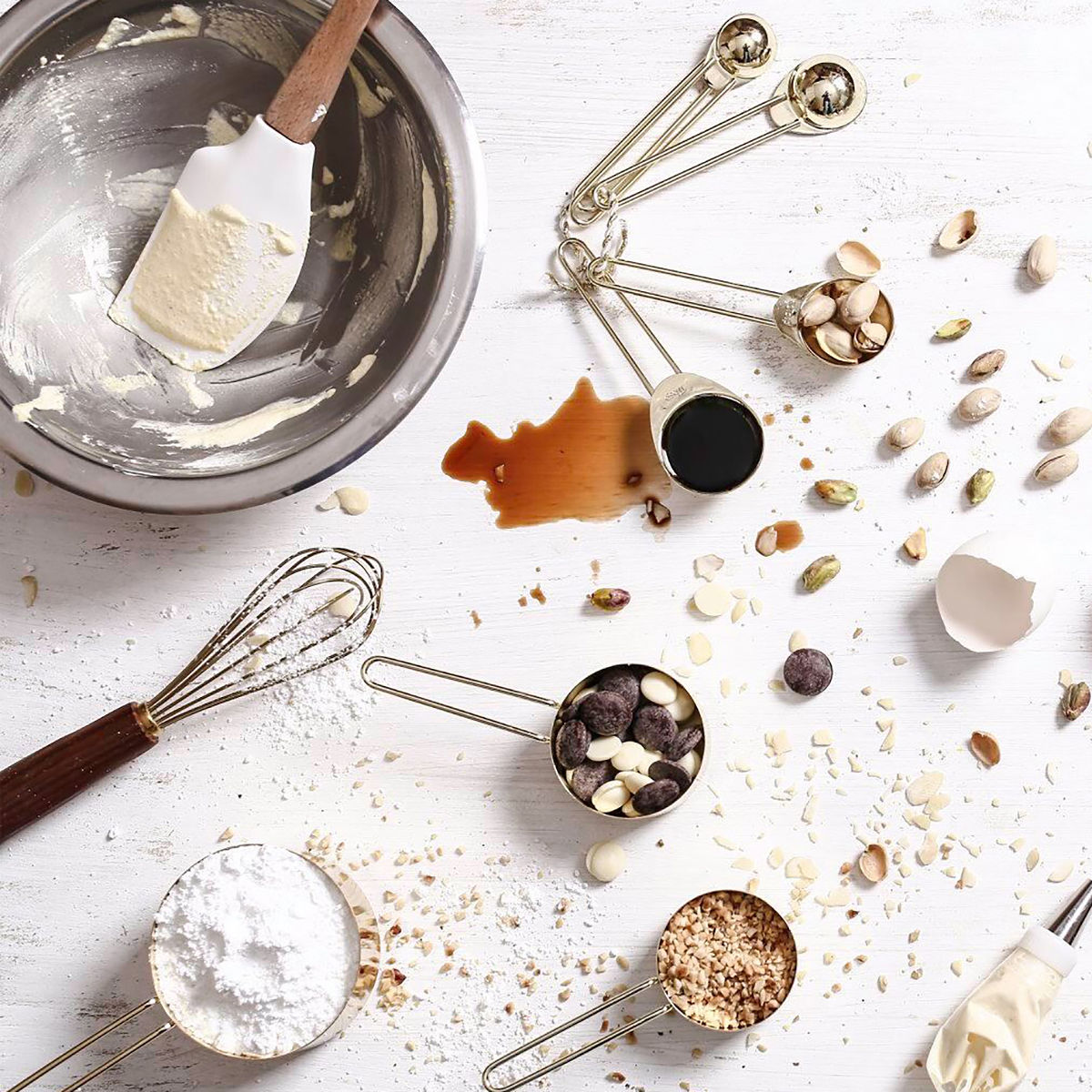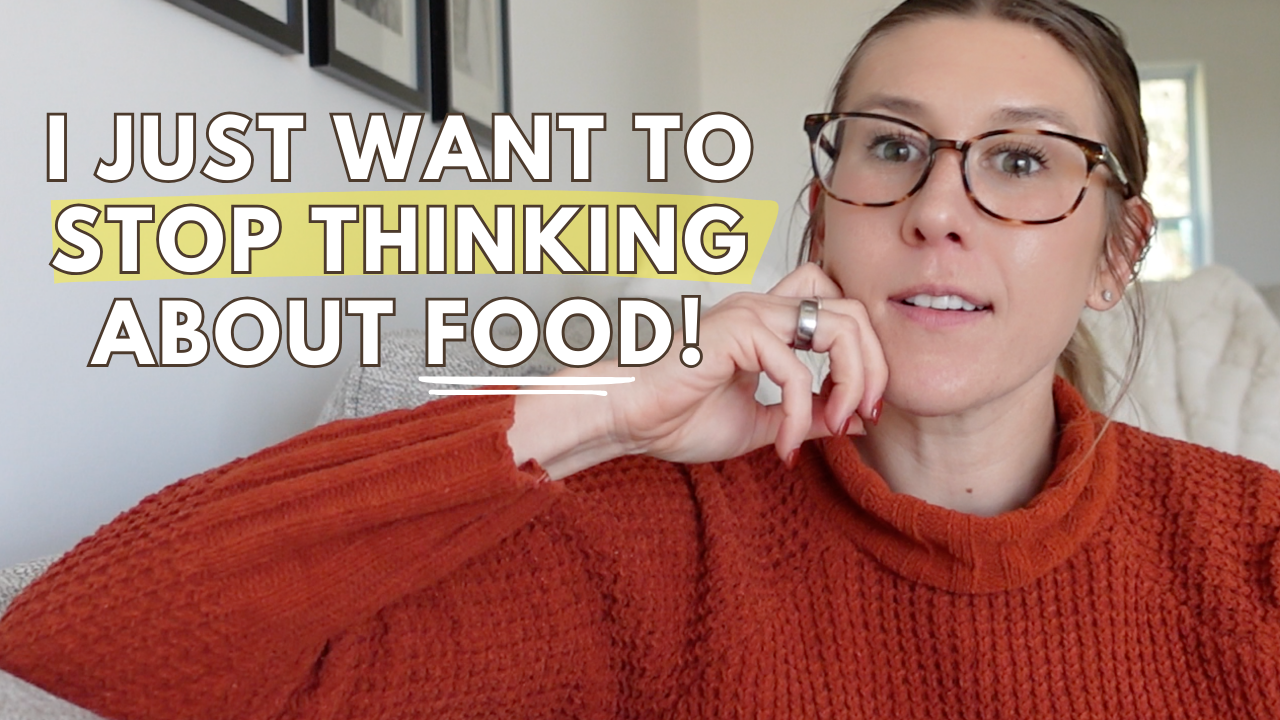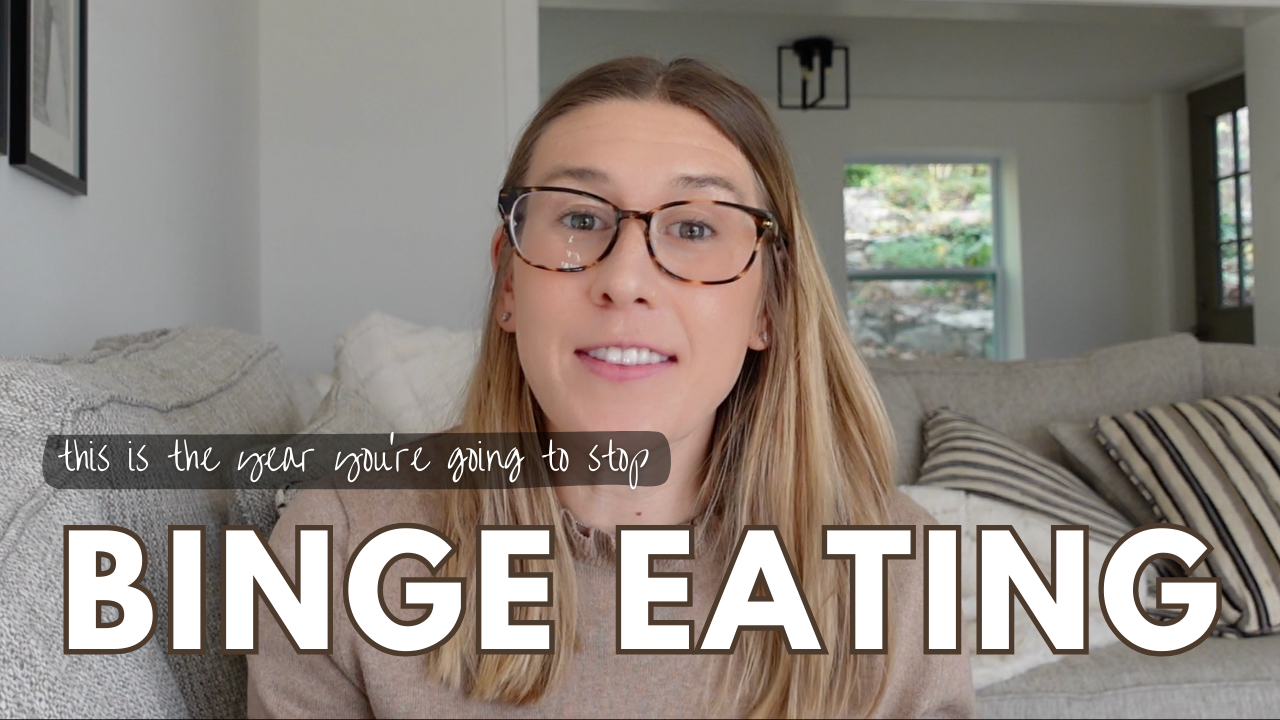Can’t Stop Thinking About Food? Let’s Change That!
August 23, 2020

Hey There, I'm Ryann Nicole.
I’m a recovered binge eater who changed the story from something that happened to me to something that happened for me. Now, I’m a licensed therapist teaching you to do the same.
My mission? To help you ditch food stress and live your life with mental peace and freedom every single day!
Imagine having a conversation with your best friend and discovering that they don’t think about food all day. Sounds unbelievable, right? I remember my jaw dropping in 10th grade when my friend told me it wasn’t normal to think about food 24/7. I couldn’t fathom a life like that. But here’s the deal, if you can’t stop thinking about food, you’re not alone, and there’s a way out of this food-obsessed maze!
Why You Can’t Stop Thinking About Food
Here’s what it’s like to be caught in the web of food obsession:
- You’re constantly thinking about what, when, and how much you’re going to eat.
- You worry about eating certain foods or food groups.
- Every meal is on your mind.
- If you’re not the chef, you’re wondering what’s in your food.
If this sounds all too familiar, don’t be too hard on yourself. Instead, let’s figure out why you’re stuck in this food loop. Grab your coffee, and let’s get started!
Possible Reason #1: Obsession Distracts You
Why it happens: Sometimes, food becomes your escape from the chaos of life. When everything else feels out of control, you zone in on food for comfort.
How to break free: To kick the food obsession, address the root problem. Instead of using food as a crutch, learn to be okay with life’s ups and downs. Accept the discomfort, and you’ll be on your way to freedom.
Possible Reason #2 You’re Eating Enough, But Not Eating Satisfying Foods
Why it happens: Your mind has created a rulebook of “good” and “bad” foods and how much you should eat. When hunger strikes, your brain won’t let it go until you’re satisfied.
How to break free: Toss that rulebook out the window! Embrace intuitive eating – listen to your body and give it what it craves. Trust your instincts, and watch the food obsession fade away.
Possible Reason #3: Your Body Image is Sh*t
Why it happens: You’ve tied your self-worth to the numbers on a scale. To keep your self-worth intact, you obsess over those numbers, which fuels your food fixation.
How to break free: Separate your worth from your weight. Find internal validation and self-love that doesn’t depend on the scale’s verdict.
Possible Reason #4: You’re Not Eating Enough
Why it happens: You might not recognize hunger cues because you’ve ignored them for so long or you simply believe they’re unreliable.
How to break free: Listen to your body. Use a hunger scale to stay between a 3 and 7. When you dip below a 3 or skip meals, your thoughts revolve around food. So, feed that hungry belly!
Possible Reason #5: You’re Mentally Restricting
Why it happens: Restrictions come in two forms: physical (forbidden foods, eating times, or quantities) and psychological (labeling food as “bad” and feeling guilty after indulging).
How to break free: Give yourself permission to eat without guilt. Slowly break down those restrictions by facing your food fears. Start small, let go of labeling, and watch the food obsession vanish.
If you can’t stop thinking about food, what do you do?
If you’re stuck in a never-ending food thought cycle, it’s not really about the food. The root cause might run much deeper. So, dig into those underlying issues, and you’ll find the path to freedom from food obsession. It’s time to reclaim your life and thoughts – one satisfying, guilt-free bite at a time!
Must Read Books If You Can’t Stop Thinking About Food
Just so you know, I do review everything I recommend. When you buy through links on this page, we may earn a commission.
Intuitive Eating by Elise Resch and Evelyn Tribole
When it was first published, Intuitive Eating was revolutionary in its anti-dieting approach. The authors, both prominent health professionals in the field of nutrition and eating disorders, urge readers to embrace the goal of developing body positivity and reconnecting with one’s internal wisdom about eating―to unlearn everything they were taught about calorie-counting and other aspects of diet culture and to learn about the harm of weight stigma.
Health At Every Size by Lindo Bacon
Fat isn’t the problem. Dieting is the problem. A society that rejects anyone whose body shape or size doesn’t match an impossible ideal is the problem. A medical establishment that equates “thin” with “healthy” is the problem. The solution? Health at Every Size. Tune in to your body’s expert guidance. Find the joy in movement. Eat what you want, when you want, choosing pleasurable foods that help you to feel good. You too can feel great in your body right now—and Health at Every Size will show you how.
Anti-Diet by Christy Harrison
In Anti-Diet, Christy Harrison takes on diet culture and the multi-billion-dollar industries that profit from it, exposing all the ways it robs people of their time, money, health, and happiness. It will turn what you think you know about health and wellness upside down, as Harrison explores the history of diet culture, how it’s infiltrated the health and wellness world, how to recognize it in all its sneaky forms, and how letting go of efforts to lose weight or eat “perfectly” actually helps to improve people’s health—no matter their size. Drawing on scientific research, personal experience, and stories from patients and colleagues, Anti-Diet provides a radical alternative to diet culture, and helps readers reclaim their bodies, minds, and lives so they can focus on the things that truly matter.
check out the pod
Ways I Can Support You
01 Coaching
Intimate group coaching to break free from binge eating
02 podcast
Real talk on food, mindset shifts, motherhood, and finding peace.
03 support group
A safe space to connect with others on the same journey.
04 free coaching
Have real conversations and hear others share their struggles.
Ryann Nicole
Licensed Therapist, Certified Nutritionist, and Virtual Wellness Coach
Ryann is a licensed therapist and virtual wellness coach who has assisted individuals worldwide in establishing a healthier relationship with food and their bodies.
Are You Ready to Heal Your Relationship With Food?
I understand—it can be overwhelming to figure out where to begin. Let's simplify things and have you start right here:
Why Am I Overeating?
First Steps To Stop Binge Eating
The Ryann Nicole
Podcast
FREE QUIZ
FREE GUIDE
Podcast
the food freedom lab podcast




